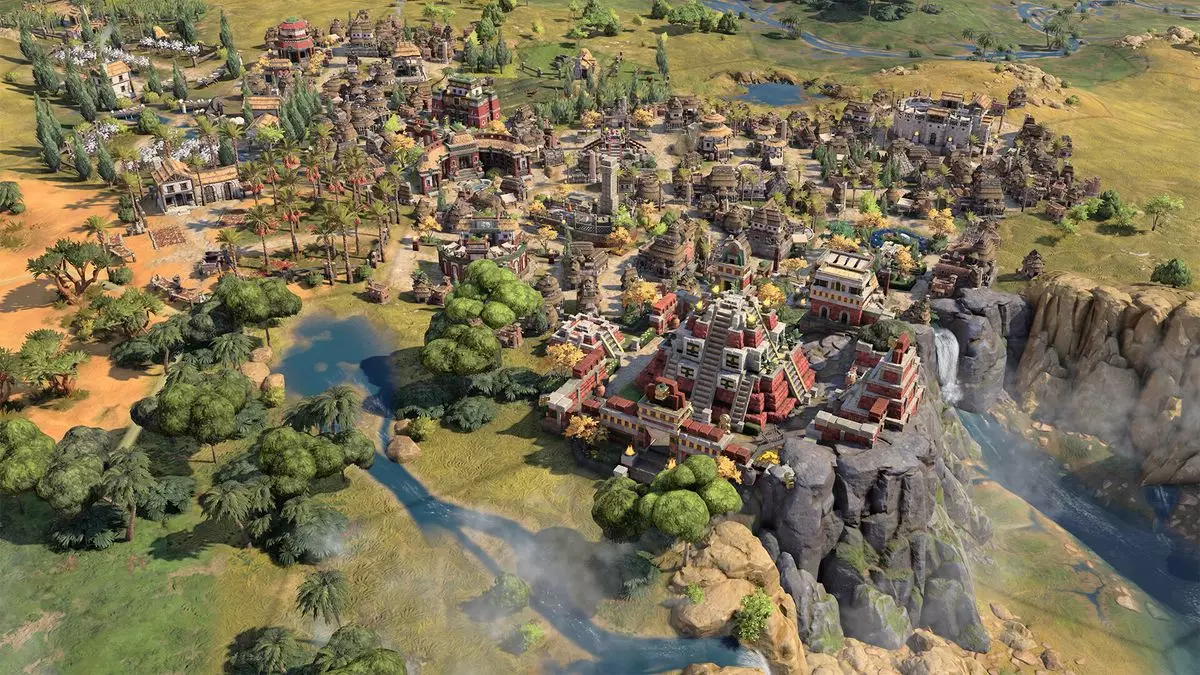The strategy gaming genre has long been dominated by a few key titles, with the Civilization series frequently at the forefront. With the announcement of Civilization 7, the developers are set to introduce a revolutionary concept: the Ages system. This fundamental change aims to breathe new life into a series that has seen consistent success through its established formula. Executive Producer Dennis Shirk has described this transformation as “one of the biggest changes we’ve made to the game and one of the scariest in terms of changing Civilization.” As the franchise prepares for this leap into uncharted territory, players and fans alike are left to ponder what this means for the series’ future.
At the heart of this new installment is the Ages system, which divides each match into three unique phases. This division offers players the opportunity to adapt, evolve, and even switch their civilizations or leaders based on the changing circumstances of the game. Shirk emphasizes that this innovation is not merely a cosmetic change; it fundamentally alters the flow of gameplay. Instead of experiencing the majority of strategic insights or unexpected twists in the early game, players will now find themselves encountering multiple potential turning points throughout the entirety of the match.
This evolution fosters a dynamic environment where flexibility becomes paramount. Players are encouraged to explore different strategies and approaches, navigating the challenges and advantages presented by each Age. Shirk’s insight into the exploration mechanics illustrates this clearly: players will initially find themselves restricted to their starting continent. As they progress, the onset of new Ages will provide access to previously unattainable technologies, such as advanced shipbuilding, allowing for oceanic exploration and the potential for newly varied interactions with different civilizations.
One of the more intriguing aspects of this new system is the potential for customization within the gameplay. Each civilization and leader possesses unique attributes and abilities, unlocked through an attribute tree that is tailored to individual leaders. This level of personalization enables players to create diverse combinations that could significantly impact their overall gameplay experience. Shirk’s assertion that this system acts as a new puzzle for players to unlock adds an enticing layer of depth, as gamers not only strive to conquer their opponents but also navigate their path through the ever-evolving Ages.
This newfound agility in civilization management may appeal not only to hardcore fans of the series but also to newcomers drawn in by the promise of innovation. The possibility of adjusting one’s strategy mid-game is a refreshing element that could lead to heightened engagement among players, as they are no longer confined to a singular, linear path throughout a match.
However, with significant change comes the challenge of balance. Creative Director Ed Beach mentioned that this shift will likely be “the hardest thing” for longtime fans to grasp. The intricate interplay between multiple civilizations and leaders, each with their own strengths and weaknesses, will require players to develop a robust understanding of not just their chosen civilization but also those of their opponents. Achieving this balance is crucial for the competitive aspect of the game, where strategic acumen can determine victory or defeat.
Shirk’s statement that the new system was crafted with “care and with time and effort” should instill confidence in players as they await the game’s release on February 6, 2025. The anticipation surrounding this innovation highlights an overarching theme within strategy games—the constant evolution of gameplay mechanics to keep the experience fresh and compelling.
As Civilization 7 looks poised to redefine the way players engage with the series, the introduction of the Ages system represents a bold leap forward. It encourages discovery and adaptability, pushing players to rethink their strategies and engage with the game world in novel ways. Fans are left to wonder how these changes will ultimately manifest and how they will affect their beloved franchise. With the release date drawing closer, the gaming community eagerly awaits what promises to be a transformative chapter in the Civilization narrative.

